IN THE MOTHERLAND: The American tour guide who mocked Lapu-Lapu
By Laurel Fantauzzo
This week, Laurel Fantauzzo begins a series of essays on the Philippines. She is in the country on a Fulbright scholarship to research her journalism project, “Jolli Meals: The Rise of Filipino Fast Food.”
The tour guide felt familiar to me at first. He was Midwestern American and proud of his father, who had occupied Corregidor before him as the American soldier in charge of the largest gun on the island during World War II. The guide had moved to Corregidor a few years before to tell tranvia-loads of English-speaking tourists about his father’s role there. He reminded me of my own white American father, a military veteran who always stopped to shake soldiers’ hands and had nothing but praise for America’s incursion into the Philippines.
We were passing a long-ago exploded barracks, the cement falling in on itself, when the tour guide said, “After the Spanish-American War, Cuba got independence, but the Philippines couldn’t defend itself, so the Americans took control.”
Hm. No mention of the Philippine-American War? The years-long Philippine insurgency, from which the Americans wrote its entire Iraq war playbook on how to deal with insurgents? A strange omission.
Ah. Lucky for the guide, we were traveling with a Filipino writer who’d recently completed a Philippine history book. The Filipino writer said quietly. “I’m going to say something to him.” So he spoke in low tones to the guide at one of our stops, telling him a few details about the Philippine-American War he had failed to mention.
“I’m not going to get into an argument with you about this,” the guide replied, and walked away from the Filipino writer.
We stopped at a monument to important dates in Filipino history. An enormous bust of Lapu-Lapu and his warriors lorded over the plaque labeled 1521, which proclaimed the battle against Magellan at Mactan as the first Filipino resistance against foreign invasion.
“There’s some dispute if Lapu-Lapu really killed Magellan, or if Magellan just fell over with too much armor on and drowned,” the guide said. He pronounced the name “La-poo La-poo,” and chuckled. “Anyway, since you’re Americans you won’t be too interested in this memorial, since this is really just Filipino history. It’ll probably be boring to you.”
Later, near a memorial to dead Japanese soldiers, he said, “Japanese tourists often ask for my tour instead of the Filipino guides, since the Filipinos tend to not care about accuracy.”
Okay now. I’m trying to be even-handed about this. I’m trying to be an even-keel essayist and let the man speak for himself. But the tour guide made me furious. Contempt undercut his every mention of Filipinos. Filipino history, Filipino tour-guiding, the Filipino relationship to the United States; Filipinos were, according to his anecdotes, helpless, liars and invisible. He would not cede any victory to Filipinos; he would not leave the tranvia to take us to the plaques proclaiming important dates in Filipino resistance.
As a mixed FilAm, I have no room for easy, one-sided versions of international relations, in part because easy, one-sided versions have no room for me. You cannot talk to me about American rule in the Philippines without using the words imperialism, postcolonial mentality, or, at the very least, complicated. You cannot put me on a tranvia on an island of the Philippines and proceed to belittle or ignore the Philippines altogether. But the guide made it clear that in his estimation, the Filipino story was forgettable, or laughable. At what point did his veteran father hand him a permission slip to chuckle about Lapu-Lapu on Corregidor?
I seethed, thinking of the future tranvia audiences, some of them American congressmen, who would nod and laugh along with the guide, having never picked up a history book for themselves. And then I seethed even more, remembering how few American history books gave any mention to the Philippine-American War, or Philippine history, at all.
As a guest with no map of the island, stuck on a tranvia during the hottest part of the day, I had no way to immediately mitigate all of my anger. So I sat in the front row and rolled my eyes. I turned my head all the way around to widen my eyes angrily at my classmates, who nodded in sympathetic horror with me. I said out loud, as we disembarked from the tram, “I had no idea there was no Philippine-American War, and no idea that Americans were incapable of being interested in a history other than their own.” The tour guide did not look at me.
Yes, I was taking the tour guide’s slights personally. Because they were personal. The guide’s the son of an American WWII veteran, huh? Well, I am the granddaughter of a Filipino WWII veteran. My grandfather was First Lieutenant Ysidro Flores. He wrote musicals in Manila and slipped away from rehearsals frequently to fight as a guerrilla in the tunnels under the city. He strategized alongside American soldiers like our tour guide’s father.
My grandfather died before I met him, but I suspect he may not have approved of my aggressive eye-rolling and grad-school sarcasm, even if it was in defense of his memory. Papang was, by all family accounts, a man whose soft-spokenness belied his courage. He hated direct confrontation and raised voices. But he island-hopped in Mindanao in pursuit of Japanese soldiers, carrying a pistol or a ‘bolo,’ and descended into dark Manila labyrinths to resist. He once saved a neighbor’s life like this: He made his way through the angry crowd about to hang his friend as a collaborator, said a few soft words, put his hands on the man’s noose, and lifted it away.
The tour guide made no room in his story of Corregidor for someone like my grandfather. The songwriter, the guerilla, the soldier who’d more than earned his rank and the American pension that supported my grandmother for 30 years after his death. Perhaps it was my responsibility to soften the version of history that had fossilized in the tour guide during countless tours on this island. Perhaps it was time for a direct confrontation. Time for this FilAm to remind this American of the equality and dignity of Filipinos.
Then the tour guide pointed out his wife, a white American woman who waved to us from a picnic table as we rode by. He said she was beautiful, and then, emphatically, “I am not married to a Filipina!”
My anger spiked, and then broke, like a fever.
I didn’t bother to say my grandfather’s name. This “guide” was not worthy to hear it. I didn’t bother to tell the man that I’m the 27-year-old result of a white American father and a Filipina mother. I didn’t bother to point out the four other Filipinas on our tour. I didn’t bother to remind him that this country does not belong to him or to his father. Some attitudes—I will use the words now: racism, bigotry—steeped in assumptions as violent as war, can’t be lifted away with softly spoken truths. They linger to trouble me, and tighten my throat.
Laurel Fantauzzo recommends “A History of the Philippines: From Indios Bravos to Filipinos” by Luis Francia.

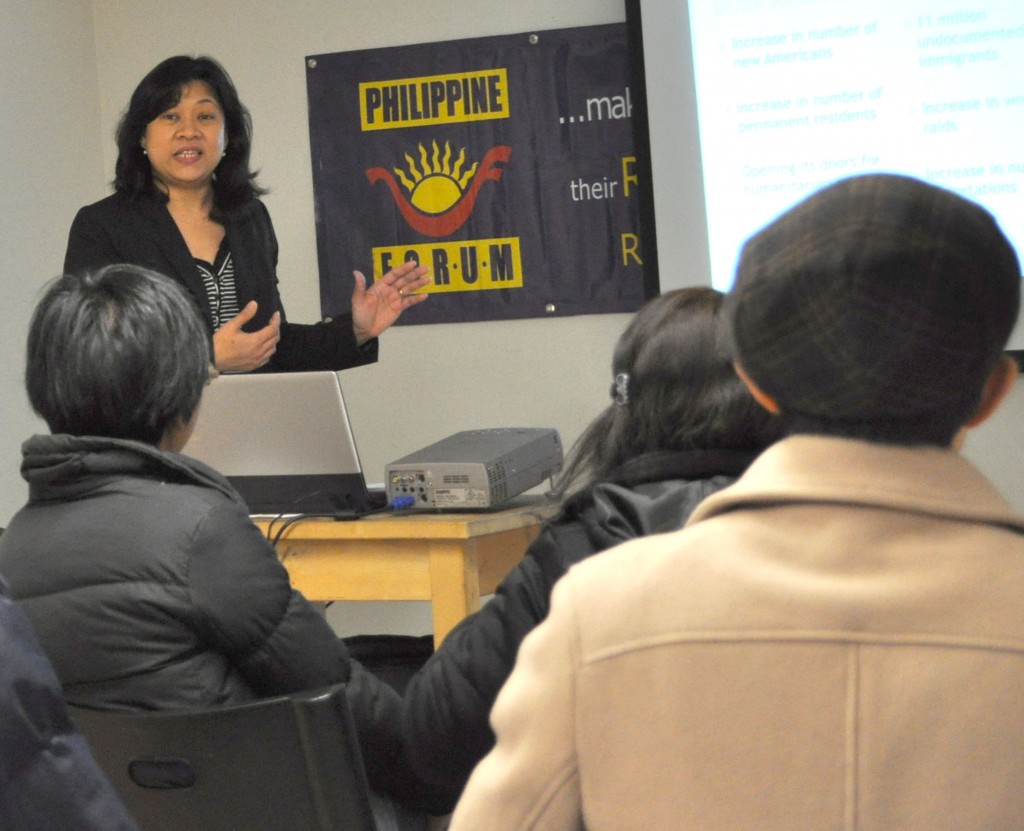
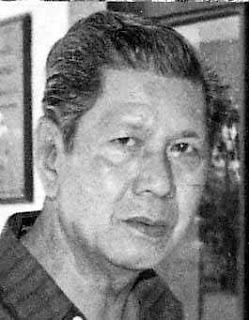
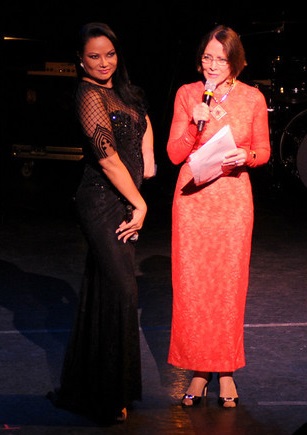
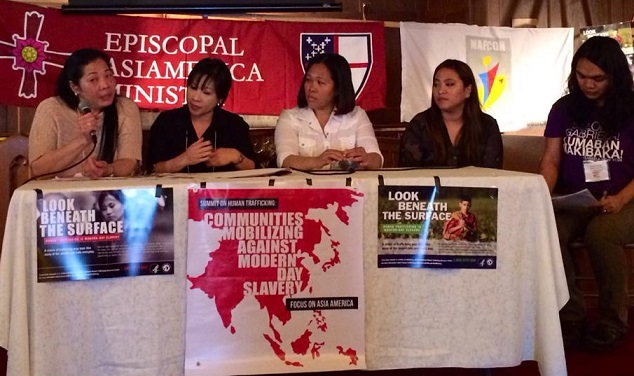

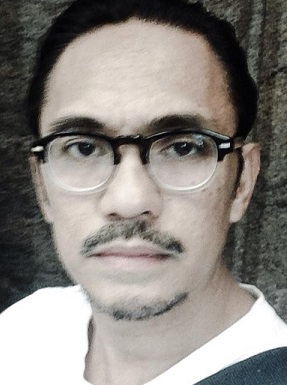
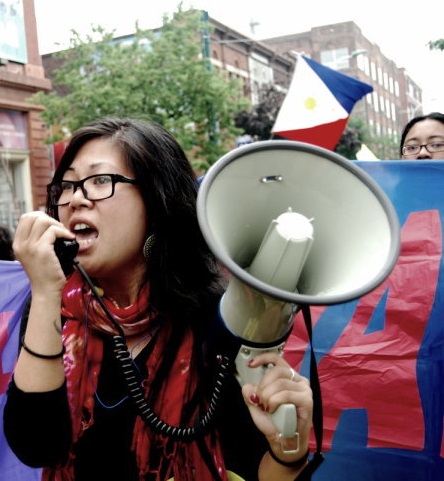
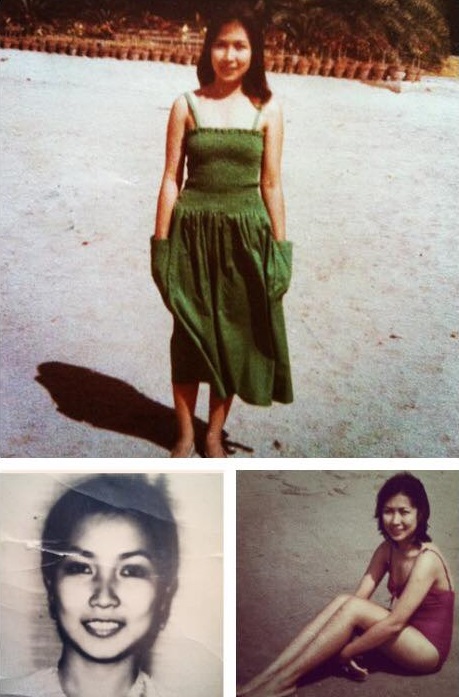

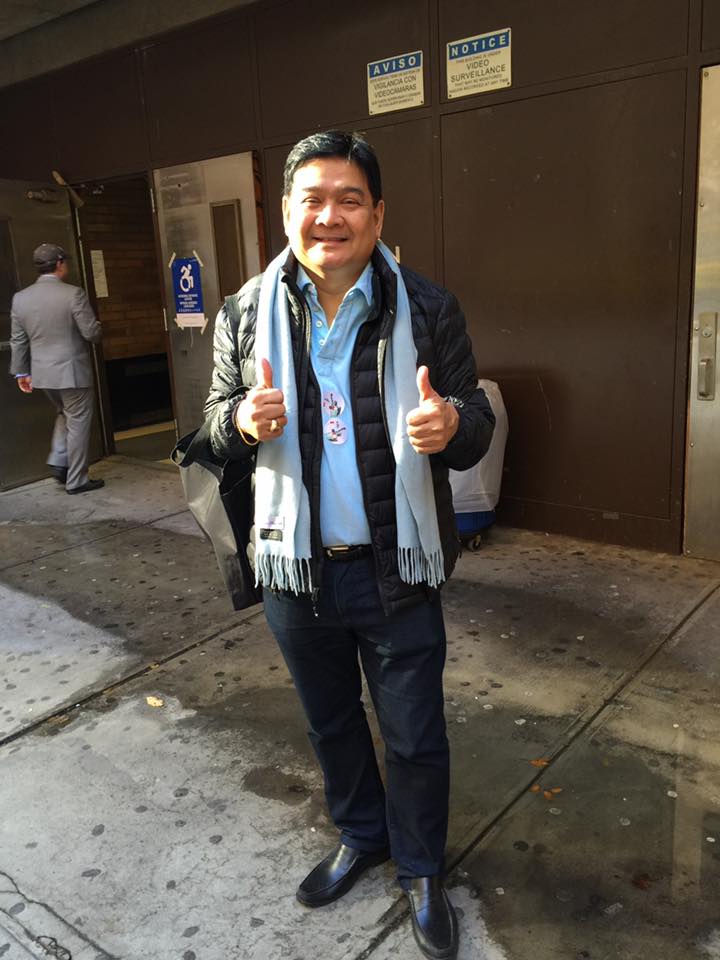
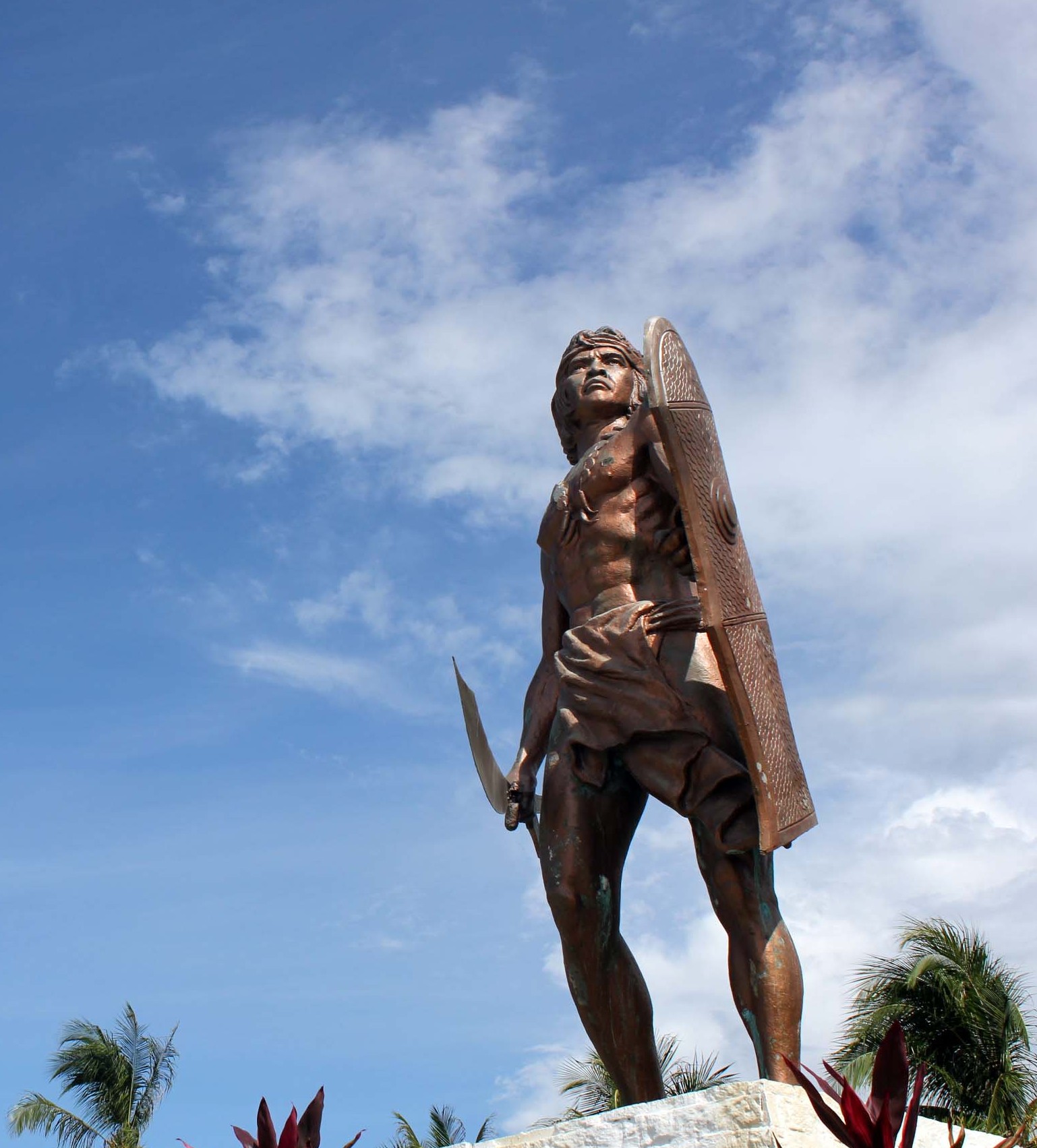
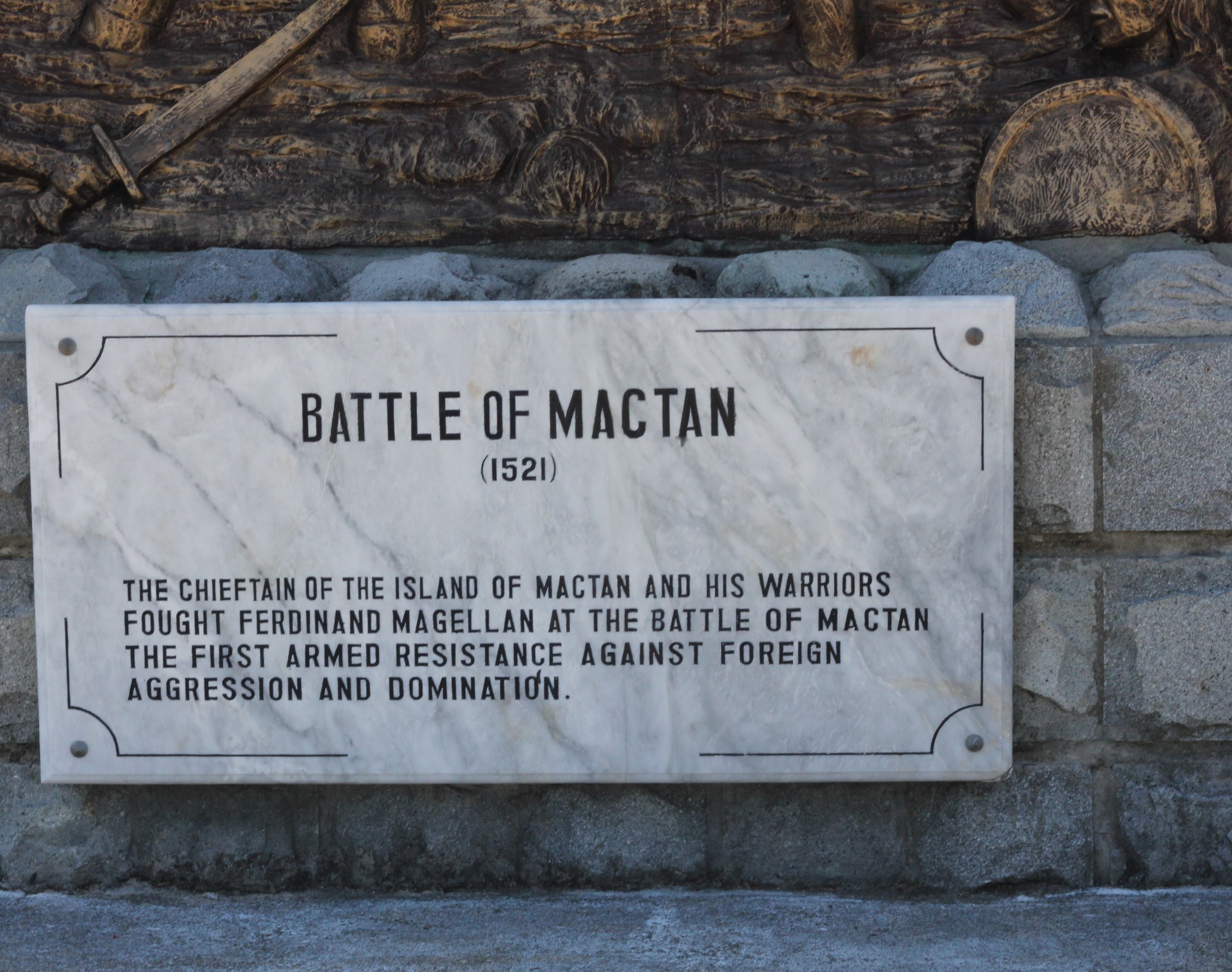

Such blatant display of racism by the tour guide should not have gone un-addressed. Truth is not served by seething in silence or rolling of the eyes; truth is served by speaking out at the moment the lie is spoken in front of an audience. It would not be stooping down to the level of the tour guide to correct his jaundiced portrayal of the Philippines and the Filipino people. The Filipino history writer, too, missed an opportunity to right a wrong in spite of his credentials. The tour guide did not deserve a confidential treatment of his malicious acts, but an open rebuke and exposing of his malice.
Anyway, what is a tour guide like that doing in the Philippines, guiding tourists and spreading misinformation and his personal venom about the country and its people? Who is his employer? If it is the tram owner and the tram is licensed by the Department of Tourism, then I suggest you send a copy of your essay to the Secretary of the Department of Tourism of the Philippines since you will be in the country for a little while. If you don’t hear from him/her after a reasonable time, then send your essay to the President of the Philippines. We may not readily appreciate the impact, but nefarious little things, such as the tour guide is perpetuating, retard the development of the country in a big way.
I don’t think there’s one way to serve truth. And I believe that Ms. Fantauzzo’s documentation and address of the incident is a valid way of responding. How many more people will know of this now? There are many ways to initiate change; direct confrontation isn’t the only one.
Who is to say that an institutional response wasn’t enacted after this incident, anyway?
I didn’t say there’s only one way to serve truth and I also didn’t say that an “institutional response wasn’t enacted.” Kudos to FilAm for providing a forum for Laurel’s essay. Now the whole world knows about the “Philippine-bashing tour guide in the Philippines!”
It is better to be violent, if there is violence in our hearts, than to put on the cloak of non-violence to cover impotence. Violence is any day preferable to impotence. There is hope for a violent man to become non-violent. There is no such hope for the impotent. – Ghandi
I believe I met that fellow, the American “researcher” living in Corregidor with his wife, a couple of years ago. It was on the island. Since I was with a group of Pinoys, he wasn’t as imbecilic. I do recall he took issue with what sounded like a chronological mix-up in the script of the Malinta Tunnel son et lumiere show. And that I had a word with him. Forget his name now, but he has a blogsite where he adds to his Corregidor history.
As a tour guide, he must be employed by the Corregidor Foundation, Inc. — maybe his services are in exchange for lodging (he pointed out their little bungalow that used t be some office bldg.).
Ms. Laurel, your piece ought to be seen by the proper authorities, and that guide be given a chance o give his side. I’m a friend of Luis Francia whom you mentioned as the history writer in that tranvia tour. I’ll gert together with him on this.
— Krip Yuson
He should be kicked out of there. Grrrr!
Hello, FilAms and Laurel, if you are reading this.
It’s terrible to hear of such ignorant attitude. I had taken the same tour sometime in July of last year but had not come across any foreign tour guides. Was this one working for Sun Cruises? A part of me wishes I had taken his tour.
It is great that the sophisticated interconnection we now have through the internet is helping civic information like this reach people who care about what goes on in their country. Had this happened 10 years ago, perhaps only you, a handful of family, friends and coworkers, would have seethed.
However, if I may participate, I do have a few other thoughts.
When I read the part about your grandfather and his role in Philippine history, I tingled with pride. The intensity of his nationalism broke him past the prudence of passivity. To be honest, I cannot imagine being audience to injustice so squarely remedied in these high-handed times of colonial vogue. In history and current news, we come across stories of nations captivating us with feats they achieve through collective love for their homeland. We see citizens who, in effect, grow to respect each other as fellows of a revered country and race, nameless they may be to one another.
Sadly, in the Philippines, even disaster relief donations are plundered by the very people entrusted to ensure its proper disposal. A growing number of Filipinos are the first to desert their own.
I do not wish scandal upon this declaration but a level-headed view regarding what I have to say next.
Identity. Perhaps it is because of our history that the Filipino is in a perpetual flux of identities. When Manny Pacquiao wins in the ring, chests are pumped and paraded, infinitely proud to be Filipino. When Manny Pacquiao makes uneducated pronouncements in Philippine Congress, he is shrugged as a know-nothing who talks funny. (What is he doing in congress, Philippines?) From the self-deprecating jokes about accents and quirks to the self-congratulations at immigrating to other countries, or receiving the option to do so.
We have become whoever it is convenient to be.
The country is plagued by social injustice, political entrepreneurship and debilitating apathy to do anything about it. The collective emotion seems to be indignation, but perhaps not strong enough to propel one to speak up and take action. In a culture that is Pinoy, Fil-Am, Tsinoy, Mestizo, rich, comfortable, getting-by, poor, impoverished, what have you, the sense of identification comes in factions. We so often forget the common denominator is Filipino and that we live, or have lived, or have families living, in the Philippines.
We will always stand to lose something.
Each time a piece of history is left to crumble along with its original manuscript, a piece of our heritage as an individual race goes along with it. We continue to dilute in the tides of multi-national citizenship, forgetting that what we now enjoy is only possible because we hail from a recognized nation. Despite its shortcomings, the country is ‘legit’. Where other countries are staunchly promoting their own, we are promoting theirs as well. Where does that leave the Philippines? Wishing to have been born under a different nationality or under a different regime of leaders do no good. The reality is this. What are we going to do about it?
Yes, the Midwestern American tour guide reeked of racism and bigotry. But I venture to think there was something else in the mix. Perhaps ignorance veiled with arrogance? In my 28-years, I have noticed that it is easier for one to shun that which is not known than to make an effort to learn about it. He will continue in his ignorance because, with all due respect to your decision, nothing was said. You were angry, and then it ebbed, and then you told people about it. To him, it was just another day at work, much like all the other days, where he did the talking and his audience lapped it up. The most important person to have been told, was not.
This is why I wish that for all of us Filipinos who have been witness to this brand of discrimination: try to educate. Talk. Give them something to think about. If that fails, at least you let them know that this is not their land and a little respect is due their host; that they cannot go around bullying Filipinos on their own turf and not get called for it. I would hate to think that we are seen as lying dogs who neither bite nor bark when kicked. We have to do our part in resisting this kind of maltreatment rather than indirectly consenting to it by silently allowing it to continue. There is still very much value in one. One changed perspective, one touched heart, one conscience stirred, one mind shaken.
Many things can happen, a heated argument is likely. But if our nationalistic protectors whom we call our heroes, your grandfather included, took it upon themselves to defend what they believed to be correct, why can we not mimic the same? They were armed with pistols and bolos, clandestine propaganda and underground societies, and they fought with their lives; we have the safer advantage of exposure to civility, diplomacy, and a more informed world around us, and we can fight with our intellect. Our freedom to discourse and debate is protected, thus nothing bars us from speaking our informed thoughts except ourselves.
The country is populated with about 90 million people. I highly doubt that an errant tour guide should be on the president’s agenda. (This is in response to a comment I read below the essay. No offense.) I believe that we should take it upon ourselves to defend what is rightfully ours. Our heritage, our history, our country, our identity, our right to cultural integrity.
I am glad to have read your post and I commend you for taking the time to write about your experience as I am sure it has reached many Filipinos. I hope you don’t mind me injecting some thoughts on the matter as I have been inspired to continue on caring. I work towards the day where Filipinos learn to put their foot down on bad behavior, in general. (Errant politicians most especially included.)
Imagine if 90 million people decided it was time to pitch in.
Well said, Zara. No, I did not take offense with your comment about an errant tour guide being on the president’s agenda. I want to make clear, though, that it is not the tour guide per se that merits the president’s attention, but the reputation and honor of the motherland that the tour guide is disparaging. That is an issue that the head of the land should be concerned about.
I must give credit to Laurel for sharing her experience and describing it so well that it elicited a rush of emotion from me. I forwarded her essay to my friends and acquaintances, including to the Philippine Department of Tourism, where a former classmate in grad school works as Director of Tourism Planning and Promotions. I hope something fruitful happens. The introduction to her essay said that she was beginning a series of essays on the Philippines. I look forward to reading more of her essays.
Thank you.
Geez, why didn’t you speak your mind out to the guide? You need to assert yourself and be more courageous to actually stand up to your principles. And you didn’t even mention the tour guide’s name? The blood of Lapu-Lapu is not running in your veins sister.
Oh. The guy who lives in Middle Side. I heard from the guides on Corregidor that he is indeed a grand asshole. Oh well.
Great blog. I’m on my way to NYC. Hope to meet ya.
Thanks, Carlos.
Cristina
Gago ‘tong tour guide na ‘to. Ipapa-deport ko sila as undesirable alien.
His immediate boss should check on him. His name should be reported to the office of the Corregidor tours! He should be given test on Philippine history and if he flunks he should be kicked out. It is the responsibility of the tour guide to give factual information based on history and not personal opinions. His direct supervisor should also be kicked out for allowing him to continually malign our brave heroes! He should not be allowed together with his family to live on Philippine soil because he is disrespectful of his host country! That’s why foreigners like to live here because Filipinos allow them to be arrogant and lord it over us because we say we are hospitable!
If we Filipinos would not like to speak out of anger, we should at least report and complain to the office or agency he’s working so he will know that there are people he’s offended!
I think tour guiding should be done by people who are capable of painting a positive picture of the Philippines and the Filipinos.. Why allow an American to do tour guiding, when all he does is belittle and omit great points in Philippine history! This tour guide should be nailed, if not, be deported. Deportation can best be supported by such action, belittling Filipinos in our own land..
what the h is that guy’s name anyway? somebody spill already! *seething*
i think he has an attitude opposite to his father.. I believe his father respected the filipinos on their side fighting the japs during WWII
thanks for this post, mr. larry. i sent your link to my sister in law who works with Tourism Information. how dare he insult our own, our history! he has to make a public apology to us FILIPINOS!
Greetings Laural – M. Salamat for being our eyes and ears and best of luck with your Fulbright. PS – We met through Ugnayan a while back……we also manned the door for Kevin Nadal’s one man show a long while ago!
I am PROUD OF YOU Laurel!
– Abet Geronimo
Ramon Magsaysay High School Batch ’72
1. The guy should be fired.
2. For the other side of this story, go see the new film “Forgotten Soldiers.” Facebook and also http://www.ww2scouts.com.
Luckyguillermo
8:03 AM (2 hours ago)
I just hope you’re not referring this to the current Corregidor tour guide re “Mocking Philippine History.” it also saddened me one time to hear from this American who was narrating his own story on the “Jabidah Incident”. I lodged my resentment because I believe he is not an authority to make conclusions and innuendos especially on political issues. What makes it painful, he was even smiling when he uttered that “President Marcos ordered the massacre..” I just pray that no Filipino aboard his tram will ever react violently when he blurts this sensitive statement again. But next time, I will sock his face. Promise.
I have been kind enough not to show this tour guide’s footage in public because I am considering him and his wife’s friendship with my film director Peter Parsons’ (we were then on location shoot at Corregidor some 2 yrs ago for a docu project : “Retaking”)
Well, as the story goes, history repeats itself, not unless he is the same tour guide we’re talking about. Are we referring to the same (person)? If so, pls somebody advise him to go to school under our Filipino historians, Dr. Rico Jose or with Dr. DeViana..
Let’s make history straight and I wish that the Filipino people will make their own judgement and destiny and not fashioned by some tour guide that recklessly destroys a beautiful day on the hollowed grounds of the Rock.
LUCKY GUILLERMO
Co-Author “Bolomen,” the book
Pretty nice post. I have truly enjoyed browsing your weblog posts. In any case I’ll be subscribing to your rss feed and I hope you write once much more quite soon!
We’ll be linking to this amazing post on our website.
Keep up the great writing.
Hola! I’ve been following your site for some time now and finally got the bravery to go ahead and give you a shout out from Porter Tx! Just wanted to say keep up the good job!
*very nice post, i certainly love this website, keep on it